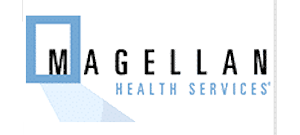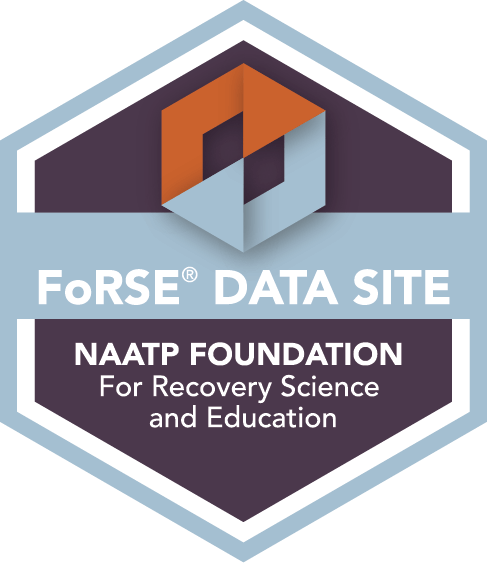At Northern Illinois Recovery Center, we are committed to helping high-performing professionals overcome substance use disorders. Anyone can become addicted to drugs or alcohol, even someone successful in their career. High-level executives, medical professionals, and other high-performing individuals deal with constant pressure in their roles. This stress can lead to addiction.
Our executive rehab in Illinois is tailored to professionals, offering privacy and quality treatment. We provide a full continuum of care so you can complete each stage of treatment here at our facility. Explore how an executive rehab for addiction works and what you can expect from treatment.
Executives may also receive ongoing support through 12-step programs or professional coaching sessions. These programs typically provide a safe and supportive environment where individuals can focus on their recovery while still meeting the demands of their professional lives. Ultimately, executive addiction treatment programs are designed to help executives and leaders find long-term healing from addiction while continuing to effectively lead their organizations.
Recovery from addiction is a life-long process that involves ongoing support. As part of an executive addiction treatment program, individuals will receive aftercare services such as individual and group therapy, sober living environments, support groups, and other resources. These services are instrumental in helping individuals maintain sobriety over the long term and rebuild their lives.
Treatments Available at Our Executive Rehab
Individual counseling is an important component in the treatment of addiction. It involves a therapist who works with a patient individually to help them recover from their addiction and become a healthier person mentally, physically, and spiritually.
Counseling sessions typically focus on recognizing the causes of addiction, learning coping skills to manage cravings and triggers, developing a relapse prevention plan, and developing constructive lifestyle habits. The counselor will work with the individual to uncover what is causing their addiction and create a recovery plan that addresses all aspects of their life.
Group therapy is an important part of addiction treatment. It allows individuals who are struggling with addiction to connect with peers who understand what they’re going through. Group therapy provides a safe space for learning, growth, and healing. During group therapy sessions, participants can share their experiences, learn coping strategies, and provide emotional support to one another.
Group therapy can help individuals gain insight into their addiction and learn how to manage it healthily. Group therapy can also help people build positive relationships with peers and develop social skills that will benefit them long-term. Overall, group therapy provides an essential source of support during recovery from addiction.
Family therapy is a type of treatment that focuses on the dynamics of family relationships and how they can affect addiction. It involves members of the family working together to recognize and address any underlying issues that may be influencing their loved one’s substance use, as well as providing support for each other throughout the recovery process. Family therapy helps people identify patterns of behavior that may be influencing their loved one’s addiction and can also help them learn more effective communication techniques.
Holistic therapy for addiction treatment is a comprehensive approach to understanding and treating addiction that looks at the physical, emotional, mental, and spiritual aspects of an individual’s life. Holistic therapy is based on the belief that addiction is not simply a “substance abuse” issue but rather a complex combination of factors – some of which cannot be seen with the naked eye. The primary goal of holistic therapy is to help individuals overcome their addiction issues by addressing the underlying causes, such as trauma, mental health issues, and lifestyle changes.
Relapse prevention is an important part of addiction treatment. It involves understanding and managing the factors that can lead to relapse so that individuals in recovery can remain abstinent from substance use and maintain long-term sobriety. Relapse prevention strategies focus on developing coping skills, recognizing triggers for relapse, learning about personal strengths, addressing underlying issues, managing stress, and developing a strong support system of peers and family members. By incorporating relapse prevention into an individual’s treatment plan, they can drastically reduce the likelihood of relapse and achieve lasting sobriety.
Skills development is an important part of addiction treatment and recovery for individuals. Skills development helps individuals learn to cope with their addictive behavior, as well as develop skills that can help them reduce the risk of relapse. It can also enhance the overall quality of life and support a successful transition from active addiction to healthier habits.
12-step support is an evidence-based approach to addiction treatment that has become a popular and widely accepted method of recovery. The 12 steps, which were initially developed by Alcoholics Anonymous in the 1930s, are designed to help individuals overcome their addictions and achieve long-term sobriety. The fundamental goal of the 12 steps is to foster a strong sense of community and mutual support among individuals in recovery.
Lifestyle education is an important aspect of addiction treatment because it helps individuals develop and sustain the lifestyle changes necessary for long-term recovery. Lifestyle education teaches individuals how to create healthier habits, such as proper nutrition, exercise, stress management, and self-care. It also helps people learn how to manage their triggers and avoid relapse.
Barriers to Receiving Treatment
Professional pride and the pressure of taking on such a public role may also deter executives from seeking help for their mental health issues. Additionally, many executives are already highly motivated self-starters who think they can handle every challenge that comes their way on their own, making them resistant to seeking professional help. Finally, work-related stress and anxiety can often trigger mental health issues, making it difficult for executives to distinguish between work-related and personal issues.
What Makes an Executive Rehab Good for Executives?
In addition to providing necessary medical care, executive rehabs feature therapeutic services such as individual counseling and group therapy, family support sessions, relapse prevention techniques, and alternative therapies like yoga or art therapy. These treatments can help individuals work through emotional and psychological issues and gain the skills they need to maintain a healthy lifestyle. Depending on the individual’s needs, most executive rehabs also offer holistic treatments such as nutrition counseling and acupuncture.
For executives in the region seeking such comprehensive and personalized care, alcohol rehab in Illinois offers programs that incorporate these essential services, ensuring a conducive environment for recovery while accommodating the demands of their professional lives.
Benefits of an Executive Rehab
In executive rehab programs, individualized treatment plans are created for each client, which include a range of services, such as addiction and mental health therapies, medical care, counseling groups, life skills training, relapse prevention planning, and aftercare support.
Executive rehab centers also provide unique amenities and assistance that can help executives focus on their recovery. For example, several facilities offer private rooms equipped with televisions and computers to keep executives connected to work and family, as well as access to private chefs or nutritionists who can ensure they receive healthy meals during their treatment. Additionally, some rehabilitation centers offer concierge services, including executive travel arrangements and corporate housing.
Insurance Verification






Executive Rehab FAQs
Executive rehab programs differ from regular rehab programs by tailoring the treatment schedule to the schedule of professionals. An Executive Rehab provides exquisite care while making sure clients are able to meet the demands of their careers. This may include dedicated workspaces, flexible schedules, and luxury amenities.
The cost for rehab for executives varies based on factors including the location, amenities offered, and length of stay. You can learn more about the cost of executive rehab at Northern Illinois by calling our admissions team.
Wealthy people and business professionals seek exclusive rehab centers to receive care. An executive rehab offers privacy and amenities that appeal to a high-performing professional or celebrities.
Executive rehab is covered by insurance, but you should check with your insurance provider to determine what treatment will be covered. Northern Illinois is in-network with most major insurance providers. You can verify your insurance with us to see if we’re in-network with your provider.
How long you should stay in rehab is determined by the severity of your substance use disorder. Rehab stays are typically between 30 and 90 days. Your care provider will recommend how long you will need treatment. We offer a 90-day rehab and flexible stays based on your needs.





